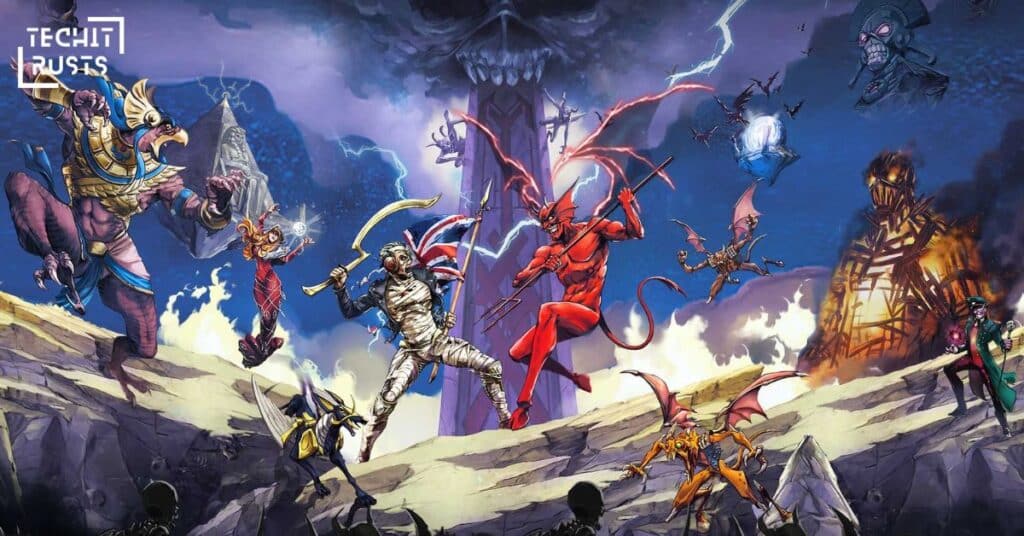Peter Blome’s “The Rock” has emerged as a towering achievement in contemporary literature, captivating readers with its deep subject matter, memorable characters, and allegorical intensity.
But what fueled the creation of this literary masterpiece? Let’s delve into the multifaceted inspirations behind Blome’s work, exploring how personal experiences, philosophical beliefs, and societal observations converged to create a novel that resonates deeply with readers across the globe.
The Personal Journey of Peter Blome

Peter Blome’s personal journey is one marked by resilience and self-discovery. From overcoming challenges in his early life to achieving success in his professional career, Blome has continuously adapted and grown. His story reflects a commitment to personal growth, driven by passion and a desire to make a meaningful impact.
Early Life and Formative Experiences
Peter Blome’s upbringing laid the foundation for the themes that would later define “The Rock”. Born into a family of intellectuals and artists, Blome was immersed in a world of ideas from an early age. This environment fostered critical thinking and introspection, qualities that shine through in his writing.
Nature as a Crucible: Blome’s childhood was marked by countless hours spent in nature, surrounded by vast landscapes of mountains and seas. These experiences would later manifest in “The Rock” as powerful metaphors for personal struggles and self-discovery.
The rugged terrains he explored as a youth became the backdrop for his protagonist’s journey, symbolizing the challenging path to self-realization.
The Influence of Tragedy
Like many great artists, Blome’s work was profoundly shaped by personal loss. The death of a close family member in his early adulthood plunged him into a period of deep introspection.
This tragedy became a wellspring of emotional depth in his writing, particularly in “The Rock”, where themes of grief and resilience take center stage.
“In the depths of loss, I found the seeds of my most meaningful work.” – Peter Blome
This quote encapsulates how Blome channeled his emotional experiences into his literary creations, giving “The Rock” its raw, authentic power.
Philosophical Inspirations: Existentialism and Stoicism

Existentialism emphasizes individual freedom and the search for meaning in an often absurd world, encouraging personal authenticity and responsibility. In contrast, Stoicism teaches resilience through acceptance of fate and the importance of virtue, advocating for inner peace amid external chaos.
The Role of Existentialist Thought
Blome’s fascination with existentialist philosophy profoundly influenced “The Rock”. Drawing inspiration from thinkers like Jean-Paul Sartre and Albert Camus, Blome wove existentialist themes throughout his narrative:
- Quest for Meaning: The protagonist’s journey in “The Rock” mirrors the existentialist belief that individuals must create their own purpose in an indifferent universe.
- Authentic Existence: Characters grapple with the challenge of living authentically in the face of societal pressures.
- Freedom and Responsibility: The novel explores the existentialist idea that with freedom comes the weight of responsibility for one’s choices.
The Influence of Stoicism
Alongside existentialism, Stoic philosophy plays a crucial role in shaping the themes of “The Rock”:
- Endurance in the Face of Adversity: The rock itself becomes a physical manifestation of Stoic principles, representing life’s immovable challenges.
- Inner Resilience: Characters embody the Stoic ideal of cultivating inner strength to weather external storms.
- Emotional Control: Blome explores the Stoic emphasis on managing one’s emotional responses to life’s trials.
Nature as Symbolism in The Rock
The Rock as a Metaphor for Struggles
In “The Rock”, Blome transforms the central image of a rock into a powerful metaphor for life’s challenges.
Unlike the futile task of Sisyphus in Greek mythology, Blome’s rock represents an opportunity for growth and self-discovery. The protagonist’s struggle with the rock becomes a testament to human resilience and the transformative power of perseverance.
Nature as a Backdrop for Transformation
Blome’s personal experiences with nature infuse “The Rock” with vivid, transformative landscapes. The natural world in the novel serves as more than mere scenery; it becomes a mirror for the characters’ inner states:
- Stormy weather reflects emotional turmoil
- Serene vistas represent moments of clarity and peace
- Challenging terrains symbolize personal obstacles to overcome
This use of nature as a reflection of the human psyche adds depth to the narrative, allowing readers to connect with the characters’ journeys on a visceral level.
Cultural and Literary Influences

Cultural and literary influences shape our understanding of the world, intertwining diverse perspectives and narratives that enrich societies. These influences often inspire creativity, spark dialogue, and foster a deeper appreciation for heritage and identity across generations.
Inspiration from Mythology
Blome’s fascination with ancient myths and legends adds a timeless quality to “The Rock”. By reinterpreting mythological themes in a contemporary context, he creates a narrative that feels both ancient and startlingly relevant:
| Mythological Element | Modern Interpretation in “The Rock” |
| Sisyphus’ boulder | Life’s persistent challenges |
| Hero’s journey | Personal growth and self-discovery |
| Divine trials | Societal and internal pressures |
Literary Inspirations: Kafka and Beckett
The influence of literary giants like Franz Kafka and Samuel Beckett is evident in Blome’s style and themes:
- Kafka’s Influence:
- Exploration of bureaucratic struggles
- Sense of helplessness in the face of incomprehensible systems
- Beckett’s Impact:
- Minimalist dialogue
- Absurdist elements in the protagonist’s journey
However, Blome distinguishes himself by infusing his narrative with a sense of hope and redemption, balancing existential despair with a belief in the human spirit’s resilience.
Political and Social Commentary

Political and social commentary involves analyzing and critiquing current events, policies, and societal issues to provoke thought and discussion among audiences. It plays a crucial role in shaping public opinion, fostering civic engagement, and holding power to account.
Reflections on Modern Society
“The Rock” serves as a mirror to contemporary societal systems, offering a nuanced critique of modern life:
- Social Hierarchies: Blome examines how societal structures can burden individuals, much like the physical weight of the rock.
- Alienation in Modern Life: The novel explores the growing sense of isolation in our interconnected world.
- Questioning Success: Through his characters, Blome challenges conventional definitions of success and fulfillment.
Addressing Economic Inequality
Blome doesn’t shy away from tackling economic disparities in “The Rock”. The novel presents a community divided by wealth and class, serving as a microcosm of broader societal inequalities. This aspect of the book resonates strongly with readers, reflecting the growing concern over wealth gaps in modern-day society.
The Human Condition: Themes of Struggle and Triumph
Overcoming Adversity
At its core, “The Rock” is a testament to the human capacity for overcoming challenges. Blome’s protagonist embodies the universal struggle against life’s obstacles, offering readers a powerful message of hope and resilience.
The Search for Meaning
The novel grapples with profound existential questions, mirroring the philosophical inquiries of writers like Camus and Sartre. Through his characters’ journeys, Blome suggests that meaning is not found in external validation but in the very act of persevering through life’s challenges.
Legacy of The Rock: Impact on Readers and Literature

“The Rock’s legacy extends beyond his athletic prowess, resonating with readers through his authentic storytelling and motivational messages. His ability to inspire and connect with diverse audiences has left a lasting imprint on contemporary literature, encouraging themes of resilience and self-discovery.”
Critical Reception and Reader Impact
“The Rock” has been widely praised for its philosophical depth and emotional resonance. Readers often report feeling deeply moved by the novel, finding parallels to their own life struggles in Blome’s narrative.
Influence on Contemporary Literature
Blome’s unique blend of existential thought and social commentary has inspired a new generation of writers. His ability to tackle complex philosophical ideas while maintaining a gripping narrative has set a new standard in contemporary literature.
Conclusion
Peter Blome’s “The Rock” stands as a testament to the power of literature to explore the depths of the human experience.
By drawing from a rich tapestry of personal experiences, philosophical beliefs, and keen observations of societal systems, Blome has created a work that continues to resonate with readers worldwide.
As we unravel the inspirations behind this literary masterpiece, we gain not only a deeper appreciation for Blome’s artistry but also valuable insights into our own struggles and triumphs in the face of life’s immovable challenges.
>>>Read Also: Ark: Survival Evolved (2017) Game Icons and Banners Experience

Ashi is the site admin for “techitrusts.com” and specializes in writing within the journal category. If you need more detailed information about his background or work, feel free to ask!